At McCallum Place, we appreciate the work you do with clients suffering from eating disorders. It is our primary goal in working with you that we maintain communication with you regarding your client’s health. As your partner, we are committed to keeping you informed on your clients status while in the care of a McCallum Place program. Upon discharge from our program, we will provide all necessary paperwork to ensure a smooth transfer back to your care.
We provide many continuing education opportunities for medical and clinical professionals interested in receiving additional education in the field of eating disorders. We are also happy to discuss how to screen for medical complications of an eating disorder and how to evaluate which level of care is most appropriate for your clients.
Signs of an Eating Disorder
- Unexplained weight loss or drop off in weight percentile
- Weight loss more than expected in given period of time (if trying to lose weight or needs to lose weight)
- Menstrual irregularity/amenorrhea
- New bradycardia
- Hypothermia
- Unexplained electrolyte disturbances
- Increased focus on exercise
- Parental concern
When to Consider More Intensive Eating Disorder Treatment
- Client not making progress with recommendations (i.e., cannot gain recommended weight, unable to cut back on exercise)
- Family stress not resolving with support
- Physician unable to provide desired medical or psychiatric monitoring
- Lack of good resources for multidisciplinary treatment or unable to establish solid outpatient treatment team
- Weight loss ongoing or stagnant
- Bradycardia, hypothermia, electrolyte disturbances not improving with outpatient treatment
- Needs more than 1x/week monitoring
Tips for Working with Clients with Eating Disorders
Many adult clients with Eating Disorders do better if they do not know their weight early in treatment. Desensitization to weight is difficult and most Eating Disorders come with a fear of fat, preoccupation with body checking and rejection of natural body weight targets. Exposure to weight can precipitate restriction and increase dangerous behavior.
Recommendation: Weigh in gown, do not share weight with client, and communicate info with outpatient therapy team.
If you know a client has an ED, it is not typically helpful to say that the weight is “fine” or that you don’t see why they need treatment.
Remember – EDs can cause medical complications at any weight. It is important to understand that a severe energy imbalance along with electrolyte abnormalities, hypoglycemia, and poor cardiac out- put all contribute to ill health.
Remember – Even overweight clients may restrict, vomit, or use laxatives.
- Don’t over focus on lab results as a sign of medical stability. Clients may misread this as a green light to continue dangerous behaviors.
- Dietitians who work with ED clients should have special training in eating disorders to help address food rituals, screen for macro/ micro nutrient deficiencies, set weight targets, and guide re-feeding.
Remember – Many clients with AN need higher calories to even maintain weight, sometimes greater than 4000 calories per day.
- Comments such as “That’s a lot of calories” aren’t helpful. It is best to explain the possible reasons for this apparent hyper-metabolic state.
- Do not assume that high weight clients are over eating or need cut back on fat. Many are eating very little fat and are already restricting calorie intake.
- Weight loss for overweight clients is difficult even for those are very motivated.
- Asking about typical eating strategies and exercise load is the best way to understand barriers to change.
Recommendation: Attend a weight sensitivity training. Help reduce weight based shaming.
















